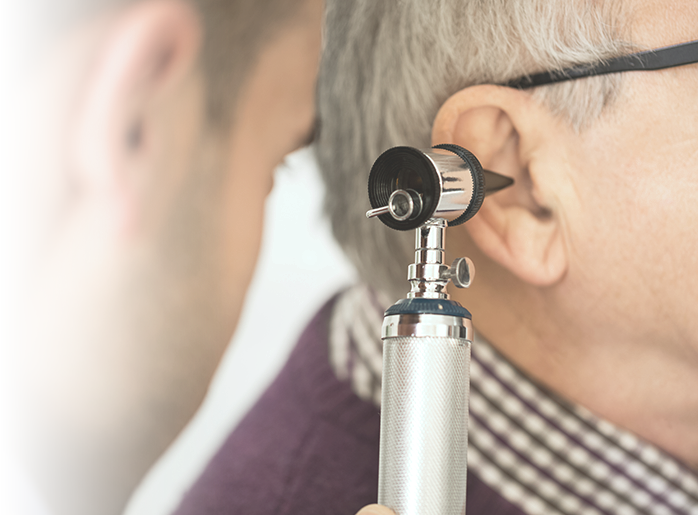Hearing Disorders
Know More: Hearing Disorders
Trustworthy information, straight from the source. Education is the first step in an empowering healthcare plan. Learn more about hearing disorders from prevention to diagnosis and treatment.

Condition Overview
What are hearing disorders?
There are two types of hearing loss–conductive and sensorineural. The type of hearing loss depends on the cause. Hearing loss is more common in older adults.
Factors that may increase your chance of hearing loss include:
- Impacted earwax.
- Recurrent or poorly treated ear infections.
- Fluid in the middle ear.
- Inner ear disorders, such as Meniere’s disease or labyrinthitis.
- Family history or certain genetic disorders.
- Birth defects affecting the structure of the ear.
- Tumors, stroke, or trauma.
- Occupational or environmental exposure to excessive noise.
Diagnosis & Treatment Options
How are hearing disorders diagnosed?
You will be asked about your symptoms and medical history. A physical exam will be done including a complete evaluation of the ears. Tests may include:
- Weber test or Rinne test: Helps distinguish conductive from sensorineural hearing loss.
- Audiometric tests: A direct test of the hearing.
- Tympanometry: Measures the pressure in the middle ear and examines the middle ear’s response to pressure waves.
- Electrocochleography: Tests the function of the cochlea and the auditory nerve.
- CT scan.
- MRI scan.
How are hearing disorders treated?
Advances in medicine and technology have led to many new treatments for hearing loss. Your treatment plan will depend on the kind of hearing loss you have. Common treatments for hearing loss includes:
- Earwax removal.
- Modifying any dietary deficiencies.
- Hearing aids.
- Assisted listening devices.
- Medications.
- Lifestyle changes.
- Surgery.
Preparing for Care
When should I consider seeing a provider about hearing loss?
If you are experiencing any type of hearing issues, you should see an ear, nose and throat (ENT) physician or your primary care provider to see if you have hearing loss and to rule out any medical condition.
